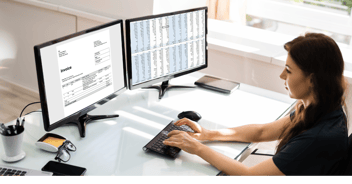Dividends Yes or No: A Guide for Small Business Owners
Are you a small business owner considering whether or not to pay dividends to shareholders? If so, this article is for you.
As a small business owner, you may be wondering if paying dividends is the right move for your company. There are a few things to consider before making a decision. In this article, we will discuss the pros and cons of paying dividends, as well as what you need to know before making a decision.
Paying dividends can be a great way to show shareholders that you are committed to growing the company. It can also be a good way to attract new investors. However, there are a few things to keep in mind before paying dividends.
Dividends are not guaranteed and can fluctuate. This means that if the company does not perform well, shareholders may not receive the same dividend payments in the future.
Paying dividends can also be a sign that the company is not growing as quickly as it could be. If a company is not growing, it may be difficult to attract new investors.
Before making a decision, it is important to weigh the pros and cons of paying dividends. You should also speak with your financial advisor to get their opinion.
In this article, we will be discussing the pros and cons of paying dividends, as well as what you need to know before making a decision.
Dividends: What You Need To Know
Dividends are a distribution of company profits to shareholders. They can be issued as cash payments, shares of stock, or other property. If you own shares in a corporation, you may be eligible to receive dividends.
Most small businesses are not publicly traded corporations and therefore do not issue dividend payments to shareholders. However, some small business owners choose to pay themselves a dividend from their company’s profits. This is often done in addition to taking a salary or bonuses.
Paying yourself a dividend has tax advantages because dividends are considered taxable income only when they are paid out (unlike salaries which are taxed as earned income). Dividend payments also have the advantage of being flexible – you can choose how much and how often you want to take them without having set amounts deducted from your paycheck like taxes or insurance premiums."
The Pros And Cons Of Dividends
There are a number of factors to consider when deciding whether or not to pay dividends. On one hand, paying dividends can be a good way to reward shareholders and show faith in the future success of the company. However, there are also some drawbacks to paying dividends that should be considered before making a decision. Let's take a closer look at both sides of the issue:
The Pros Of Dividends
1) They Can Reward Shareholders - One of the main reasons companies choose to pay dividends is because it shows faith in the long-term prospects of the business and rewards loyal shareholders. This can help keep investors happy and encourage them to continue holding onto their shares rather than selling them off.
2) They Provide A Steady Income Stream - For investors who rely on dividend payments as part of their income, they provide a more stable stream compared with other forms such as share price growth or capital gains from selling shares. This predictability can be helpful for budgeting purposes and peace of mind.
3) They're Tax Efficient - In many cases, dividend payments are taxed at lower rates than other types of investment income such as interest or capital gains. This makes them an attractive option for those looking to minimize their tax bill while still earning money from their investments
When To Pay Dividends
It's a common question among small business owners: when should I pay dividends? The answer, of course, depends on your specific situation. Here are a few things to consider when making a decision.
First, take a look at your company's profit margins. If you're not earning much profit each month, it might not make sense to payout dividends since that would just eat into your cash reserves. You want to make sure you have enough money set aside in case of tough times or unexpected expenses.
Next, think about what else you could use that money for if you didn't pay it out as dividends. Could you reinvest it back into the business to help grow profits? Or maybe there are other areas where extra cash would be helpful - like paying down debt or building up an emergency fund. It all comes down to what makes the most sense for YOUR business. There is no "right" answer, so do whatever will help keep YOUR business running smoothly and efficiently.
How To Pay Dividends
Paying dividends is one of the most important decisions a company can make. It directly affects how much money shareholders will receive, and it also has tax implications. Here are some things to consider when paying dividends:
1) How much cash does the company have on hand? This is important because companies need to have enough cash on hand to cover their expenses and pay their shareholders. If a company doesn't have enough cash, it may need to take out loans or sell assets in order to raise the necessary funds.
2) What are the tax implications of paying dividends? Dividends are taxed at both the corporate and personal levels, so it's important to understand how this will affect your bottom line. Generally speaking, you'll want to weigh the benefits of paying taxes now against deferring them into future years.
3) What is the impact on earnings per share (EPS)? EPS represents how much profit each shareholder would get if all profits were distributed evenly among them - in other words, it shows what kind of return they're getting on their investment. Paying out large dividend sums can reduce EPS significantly which could cause share prices to drop.
The Bottom Line
There are a few things to consider when determining whether or not to pay dividends. The first is the company's overall financial health. If the company is doing well and has a strong cash flow, then paying dividends may be a good idea. However, if the company is struggling financially, it might be better to reinvest that money back into the business in order to help it grow.
Another thing to consider is what kind of message you want to send to your shareholders. For example, if you're trying to attract new investors, paying out dividends can show that you're confident in your ability to generate income and profits on a regular basis. On the other hand, if you're already profitable and don't need outside investment capital, reinvesting all of your earnings back into the business can signal stability and long-term growth potential - two qualities that appeal heavily to institutional investors like pension funds and insurance companies. Ultimately, there's no right or wrong answer when it comes to timely payments; It really depends on what makes sense for YOUR specific circumstances as a small business owner dividend decision maker!
Conclusion
As a small business owner, it's important to understand whether or not dividends are a good idea for your company. Dividends are a way of distributing profits to shareholders, and they can be a good way to attract and retain investors. However, there are also some drawbacks to consider. Before making a decision about whether or not to pay dividends, it's important to understand how they work and what the pros and cons are. This blog post will outline what you need to know about dividends, so you can make an informed decision about what's best for your business.

Article by Jennifer Walsh, CPB
Jennifer Walsh has been a bookkeeper for over 20 years and she's loved every minute of it. She loves helping business owners reach their financial goals so they can live the life they love, without having to worry about the numbers.




